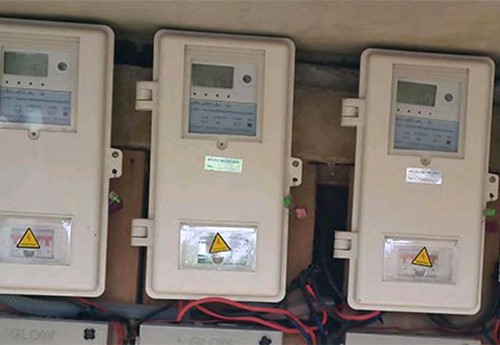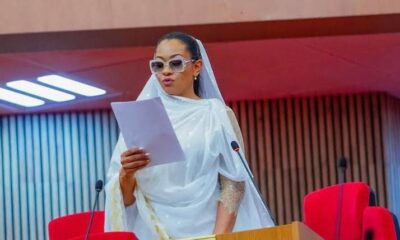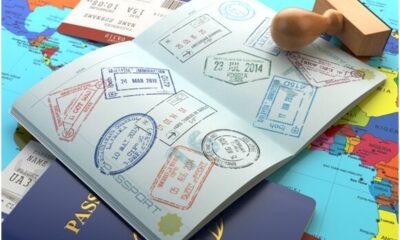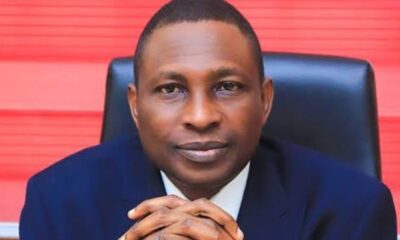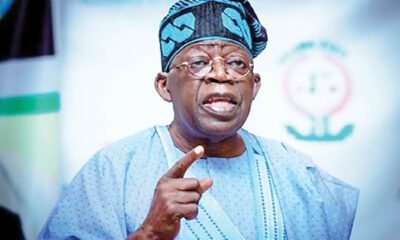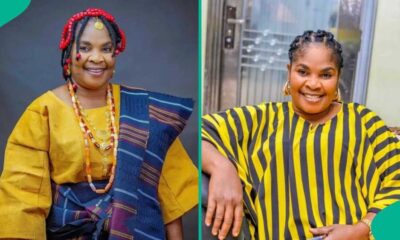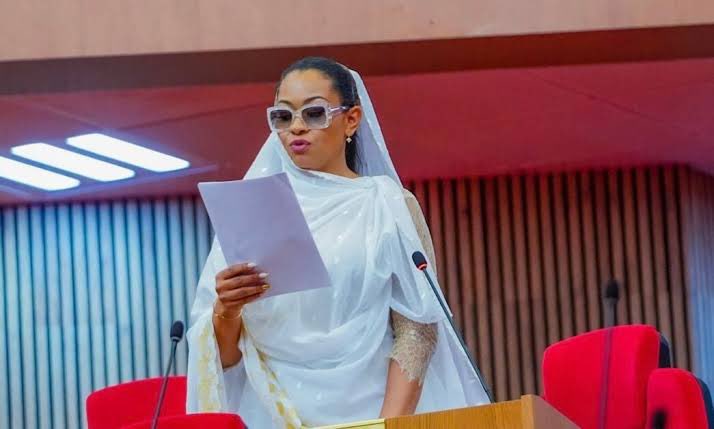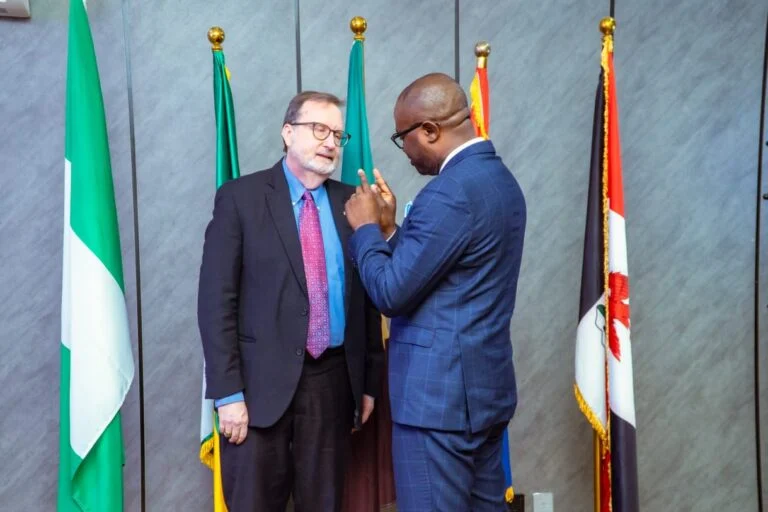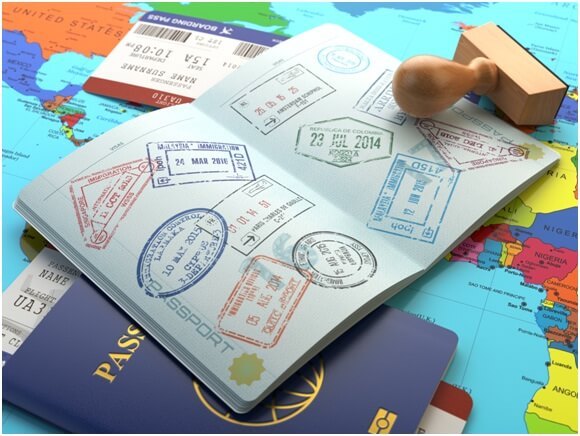The Federal Government has expressed concern over the recent decision by the United States to impose tighter visa restrictions on Nigerian citizens, describing the move as disproportionate and calling for “reconsideration in the spirit of mutual respect and cooperation.”
This development follows the United Arab Emirates’ introduction of stricter entry requirements for Nigerian travellers, which includes a complete ban on transit visa applications.
According to updated directives from Dubai immigration, Nigerians between the ages of 18 and 45 are no longer eligible for tourist visas unless accompanied, while those aged 45 and above must provide a six-month personal bank statement with a minimum monthly balance of $10,000 before being considered for a visa.
On Wednesday, the British High Commission in Abuja also announced changes to the United Kingdom’s immigration process for Nigerians applying for study and work visas.
The US Department of State in Abuja announced on Tuesday that, effective July 8, 2025, most non-immigrant and non-diplomatic visas issued to Nigerians will now be valid for only three months and limited to a single entry. This announcement prompted the FG’s response.
The US Government’s revised visa reciprocity schedule for Nigeria limits the validity of specific non-immigrant visa categories—including “B1/B2” (business and tourism), “F” (student), and “J” (exchange visitor)—to three months and restricts them to a single entry.
The spokesperson for the Ministry of Foreign Affairs, Kimiebi Ebienfa, confirmed to The PUNCH that the government is examining the new directive and its possible effects.
“We are assessing the new policy and its necessary implications. The government will respond soon, after due consultation with relevant stakeholders,” Ebienfa said.
In a statement issued on Wednesday by the Ministry of Foreign Affairs, signed by Ebienfa, the FG said it viewed the new policy with “concern and keen interest,” particularly in light of the historically cordial relations between the two nations.
“The attention of the Federal Government of Nigeria has been drawn to the recent decision by the United States Government to revise its visa reciprocity schedule for Nigerian citizens, limiting the validity of non-immigrant visas including B1/B2, F and J categories to three months with single entry.
“The Federal Government views this development with concern and keen interest, particularly given the longstanding cordial relations and strong people-to-people ties between our two countries.
“The decision appears misaligned with the principles of reciprocity, equity, and mutual respect that should guide bilateral engagements between friendly nations,” Ebienfa said.
According to the statement, the policy change would have a broad impact on Nigerians, affecting students seeking education in the US, professionals involved in legitimate business, and families visiting loved ones.
The government emphasised that the restriction could hamper cultural and educational exchanges that have long been a foundation of US-Nigeria relations.
“While acknowledging the sovereign right of every country to determine its immigration policies, Nigeria respectfully urges the United States to reconsider this decision in the spirit of partnership, cooperation, and shared global responsibilities.
“Diplomatic engagements are ongoing, and the Ministry of Foreign Affairs remains committed to pursuing a resolution that reflects fairness and upholds the values of mutual interest,” Ebienfa noted.
The ministry also confirmed that diplomatic engagements are underway, adding that Nigeria remains committed to seeking a resolution that reflects fairness and upholds the values of mutual interest.
FG, US meet
Minister of Interior, Olubunmi Tunji-Ojo, led an FG delegation that held a meeting with the US Ambassador to Nigeria, Richard M. Mills Jr., on Wednesday as the FG moved to resolve the issue.
He stated on her X handle, “I held a constructive meeting with the US Ambassador Richard M. Mills Jr. today (Wednesday), to discuss the recently introduced visa procedures for Nigerian nationals.
The meeting, attended by the Permanent Secretary, Dr. Magdalene Ajani; Comptroller General of the Nigeria Immigration Service, Kemi Nanna Nandap, aimed at strengthening ties between Nigeria and the US through a well-structured visa framework.
“The discussions centred on visa reciprocity, with Ambassador Mills Jr. providing valuable insights into the revised protocol and its alignment with established practices to uphold the integrity of the visa process.
“The Ambassador described the new e-visa policy of the Nigeria Immigration Service as an innovation intended to streamline and enhance application process for foreign travellers into the country.”
He added, “The Ministry of Interior, the Nigeria Immigration Service, and the US Mission in Nigeria agreed to strengthen collaboration, emphasizing adherence to visa regulations and promoting responsible travel practices among Nigerian citizens.
Our government under the leadership of President @officialABAT Tinubu (GCFR) will continue to ensure strict compliance across board in key areas including: 1. Secure travel documents: Ensuring the issuance of secure travel documents with verified traveller identities. 2. Visa overstay management: Implementing measures to limit overstays by travelers on US visas. 3. Information sharing: Sharing relevant security and/or criminal record information to protect public safety.”
According to the US Embassy, the revised visa terms are part of the Department’s global visa reciprocity process. The initiative was designed to align visa policies with international standards and security requirements.
The embassy stated that the new guidelines applied only to visas issued on or after July 8 and that existing visas would remain valid until their expiration.
The embassy also explained the reasoning behind the policy, emphasising the need to protect the integrity of the US immigration system.
Among the benchmarks the US considers essential are the issuance of secure travel documents, effective management of visa overstays, and information sharing on criminal records and other security-related data.
According to the embassy, the US Mission is working with Nigerian authorities to meet these benchmarks.
Despite the stricter regulations, the US government reiterated its commitment to maintaining a strong bilateral relationship with Nigeria.
In light of the changes, the US government urged Nigerian travelers to observe all visa conditions.
Diplomats react
Commenting on the development, a retired diplomat, Ambassador Rasheed Akinkuolie, described the measure as temporary and subject to review.
Akinkuolie called for a reciprocal response by the Nigerian government and urged that such reciprocity should be adjusted once the US revises its stance.
He said, “The policy of USA to reduce non-immigrant visa to three months, single entry is temporary, and subject to review. Nigeria should also reciprocate in like manner. And when the policy is reviewed by the other party, Nigeria should also do the same.
“Government delegations and diplomats of both countries travelling to USA, and Nigeria are not affected by this policy, which is an indication that government to government relationship between the two countries is still strong.
“Normally, anyone travelling to USA to visit family members, or as a tourist, should not stay for more than three months, except there is intention to ‘Japa’.”
A foreign affairs analyst Charles Onunaiju linked the new visa restrictions to broader US political trends, especially under the Trump administration.
Onunaiju argued that rather than confront the US directly, Nigeria should adopt a broader diplomatic strategy.
He said, “First, these measures are to be expected and the issue of restrictive immigration to the US was a major policy platform of the Mr. Trump campaign for the presidency. It is part of the Trump administration inverse nationalisms that can be discerned across his entire policy platforms.
“A frontal pushback will not offer much help but a deliberate policy to diversify and consolidate partnerships across the world would offset most of the effects of the US nationalist resurgence.
“Visa restrictions, punitive tariff impositions, upending traditional diplomatic practices and disruptive political mannerisms would undergird Washington international behaviours in the coming years and therefore both traditional partners like Nigeria should get ready for more of Washington twists and turns.”
Tougher entry conditions
Meanwhile, according to new directives from Dubai immigration, Nigerians aged 18 to 45 will no longer be eligible for tourist visas unless accompanied.
For those aged 45 and above, visa applicants must present a personal six-month bank statement showing a minimum monthly balance of $10,000 (or its naira equivalent).
Travel agents said the new policy was expected to drastically reduce travel from Nigeria to Dubai, a top destination for business and tourism.
“For Nigerian nationals, please bear in mind that an applicant aged 18 to 45 years travelling alone is not eligible for the TOURIST VISA CATEGORY.
“An applicant who is 45 years or above must provide a Single Nigerian personal bank statement for a period of the last six months, with each month’s end balance reflecting a minimum ending balance of USD 10,000 or its naira equivalent.
“Kindly note that the above points must be taken into consideration before sending your applications with other existing documents such as hotel reservation, data page, etc,” the notification read.
UK introduces eVisas
The British High Commission in Abuja on Wednesday announced that starting from 15 July 2025, most applicants will begin receiving digital eVisas instead of the traditional visa stickers in their passports, a statement from the BHC revealed.
The new policy will only apply to applications submitted on or after 15 July 2025. Those who submit their applications before this date will still follow the existing procedure, which includes submitting their passport at a Visa Application Centre and receiving a vignette.
According to the statement, “From 15 July 2025, most individuals applying to enter the UK on study or work-related visas will no longer receive a physical visa sticker (vignette) in their passport.
“Instead, successful applicants will be issued an eVisa, a secure, online record of their immigration status. This change marks a major step in the UK Government’s transition to a modern, digital immigration system.
“This change applies only to study or work visa applications submitted on or after 15 July 2025. Applicants who apply before 15 July will continue with the current process, including leaving their passport at the Visa Application Centre and receiving a vignette. Visit visas applications will continue to receive the visa vignette sticker for the time being.”
Importantly, applicants must still attend a Visa Application Centre to provide biometric information.
The statement further stated that once their visa is approved, they will receive an email from UK Visas and Immigration with a decision and instructions to set up a UKVI account in order to access their eVisa.
“Despite the removal of the vignette for study or work visas, all applicants must still attend a Visa Application Centre to provide their biometric information as part of the visa processing procedure.
“Once a decision is made on their visa application, applicants will receive an email from UK Visas and Immigration with the outcome and instructions to create a UKVI account, to access their eVisa,” the statement added.
The Chargé d’Affaires at the British High Commission in Abuja, Gill Obe, said, “We’re making it easier and faster for Nigerians to travel to the UK. From 15 July 2025, most people applying for study or work visas will get a digital eVisa instead of a visa sticker in their passport.
“This is a further big step to a fully digital UK immigration system, making the process more secure, more efficient, and more convenient for students, professionals, and families.”
She also noted that not all applicants would be affected by the new system immediately.
“However, if you’re applying as a dependant, like a spouse or child, of someone who is studying or working in the UK or if you are applying for a visitor visa, you’ll still receive a visa vignette sticker in your passport for the time being,” she added.
The High Commission clarified that eVisas have already replaced Biometric Residence Permits for individuals granted leave for more than six months. Holders of a UKVI account can use the “View and Prove” service to share their immigration status with third parties, such as employers or landlords in England.
To obtain an eVisa, applicants must; Apply online via the official UK government website (gov.uk); Attend a Visa Application Centre to submit biometrics; Take their passport home the same day if a vignette is not required; Follow the decision letter instructions, including creating and linking a UKVI account if necessary.
Opposition blames FG
While reacting to the tighter visa conditions on Nigerians, the opposition Labour Party accused the FG of incompetence and failure to address the deteriorating state of the country.
Speaking in an exclusive interview with The PUNCH, the Deputy National Chairman, Labour Party, Dr Ayo Olorunfemi, expressed disappointment at Nigeria’s growing international isolation, which he attributed to poor governance and a failure to provide opportunities for citizens.
“It is not just about the visa bans. Every country is moving forward, but Nigeria is stuck — in fact, we are regressing,” Olorunfemi said. “These countries can’t afford to wait for us. If we refuse to make progress, they will act in their own interest, and that is what we are witnessing now.”
He noted that the restrictions were not necessarily targeted at Nigerians but reflected a broader global response to Nigeria’s unchecked population growth, lack of development, and increasing emigration crisis.
“Our people are leaving en masse in search of greener pastures. The ‘Japa’ wave is a direct result of government failure to care for its citizens. This is why you hear some Nigerians saying they would rather be slaves abroad than free citizens here,” he lamented.
Olorunfemi warned that Nigeria’s large and growing population, if not properly managed, will continue to place pressure not just on the country but on the international community, especially well-organized developed nations.
“You can’t expect them to keep their borders open when we have refused to fix our own house. If you don’t raise your children properly, they become strays and the world will treat them as such,” he said.
He also criticised the political class, describing them as “gangs of criminals” engaged in power struggles, with little regard for the welfare of the masses.
“Rather than rebuild the nation, what we see are criminal gangs wrestling to hijack power from other criminal gangs, while the people look on helplessly, as if they have no other choice.”
The LP chieftain urged the government to urgently address the root causes of the mass exodus and international embarrassment, including insecurity, economic hardship, and poor leadership.
Also, the New Nigeria Peoples Party stated that the new restrictions reflected how Nigeria was viewed by the international community.
Speaking (with The Punch), the party’s National Publicity Secretary, Ladipo Johnson, described the development as a wake-up call for the country.
He stated, “Well, the posture of foreign countries towards us and the trend we’re beginning to see is indicative of how they perceive us as Nigerians and how valuable or otherwise they feel that we are, or our patronage.
“It is a shame that things seem to be degenerating for us on the international stage. It is a wake-up call for the government, the federal government — especially in view of the fact that Mr. President, since resuming office, has not appointed ambassadors. And I am not sure how he is selling his agenda to our partners around the world, not just the Western world.
“If his agenda is sold and our partners understand where he is going administratively, it might help the outlook that they have for the country. On the other hand, they might have seen where things are going, and they might view things negatively.
“Whichever way, we feel it is a wake-up call for the government to put its house in order. And this is not good at a time when the government is telling us that it is bringing in foreign direct investment.”
The restrictions also sparked reactions online with a member of the Peoples Democratic Party, Dele Momodu, writing on his Instagram handle, “BREAKING: The United States halts long-term visas for Nigerians. This comes on the heels of attending and actively engaging in the BRICS summit. The ramifications of President Tinubu’s limited diplomatic experience and strategic vision are becoming increasingly evident. Meanwhile, ECOWAS has fractured and diverged, marking a significant turning point in regional cooperation.”
Also, Bashir Ahmad, an aide to ex-President Muhammadu Buhari, stated on X, “I am of the opinion that the recent review of U.S. visa policy on Nigeria, reducing the 5-year multiple entry visa to just 3 months single entry, is not solely about reciprocity. Rather, it appears to reflect growing US discomfort with Nigeria’s increasing global realignment, particularly the warm reception we are receiving from the BRICS.
“Nigeria is charting its course, forging strategic partnerships that serve our national interest. Our President, Bola Tinubu’s successful outing at the BRICS Summit in Brazil sent a strong message. We are Nigeria and we will be alright.”
Reacting, Special Adviser to President Bola Tinubu on Policy Communication, Daniel Bwala, said the Federal Government is reviewing the United States’ visa reciprocity policy and taking steps to address the concerns that led to the latest development.
According to The Punch, Bwala, on Wednesday, dismissed claims that the visa reciprocity issue stemmed from poor diplomatic relations between Nigeria and the US.
He maintained that Nigeria enjoys strong diplomatic ties with the US, citing the fact that Nigeria was not among the countries affected by the travel restrictions recently announced by US President Donald Trump.
Bwala said, “It is not really about poor governance or poor diplomatic relations with the US. President Donald Trump is reviewing relations with all countries of the world. You recall that when he recently placed travel restrictions, Nigeria was not included.
“The reciprocity requires review, and we are taking steps to rectify issues. No problems at all. We are in a good relationship with the US.”

 BIG STORY2 days ago
BIG STORY2 days ago
 BIG STORY2 days ago
BIG STORY2 days ago
 BIG STORY1 day ago
BIG STORY1 day ago
 BIG STORY1 day ago
BIG STORY1 day ago
 BIG STORY3 days ago
BIG STORY3 days ago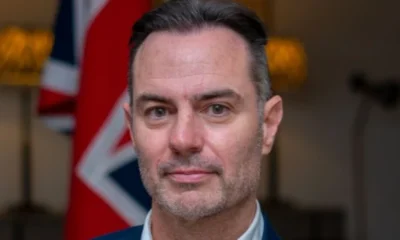
 BIG STORY4 days ago
BIG STORY4 days ago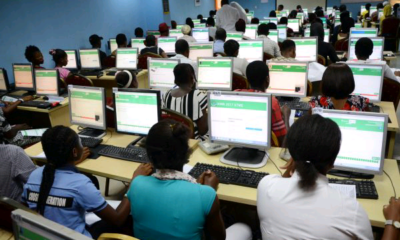
 BIG STORY2 days ago
BIG STORY2 days ago
 BIG STORY1 day ago
BIG STORY1 day ago




